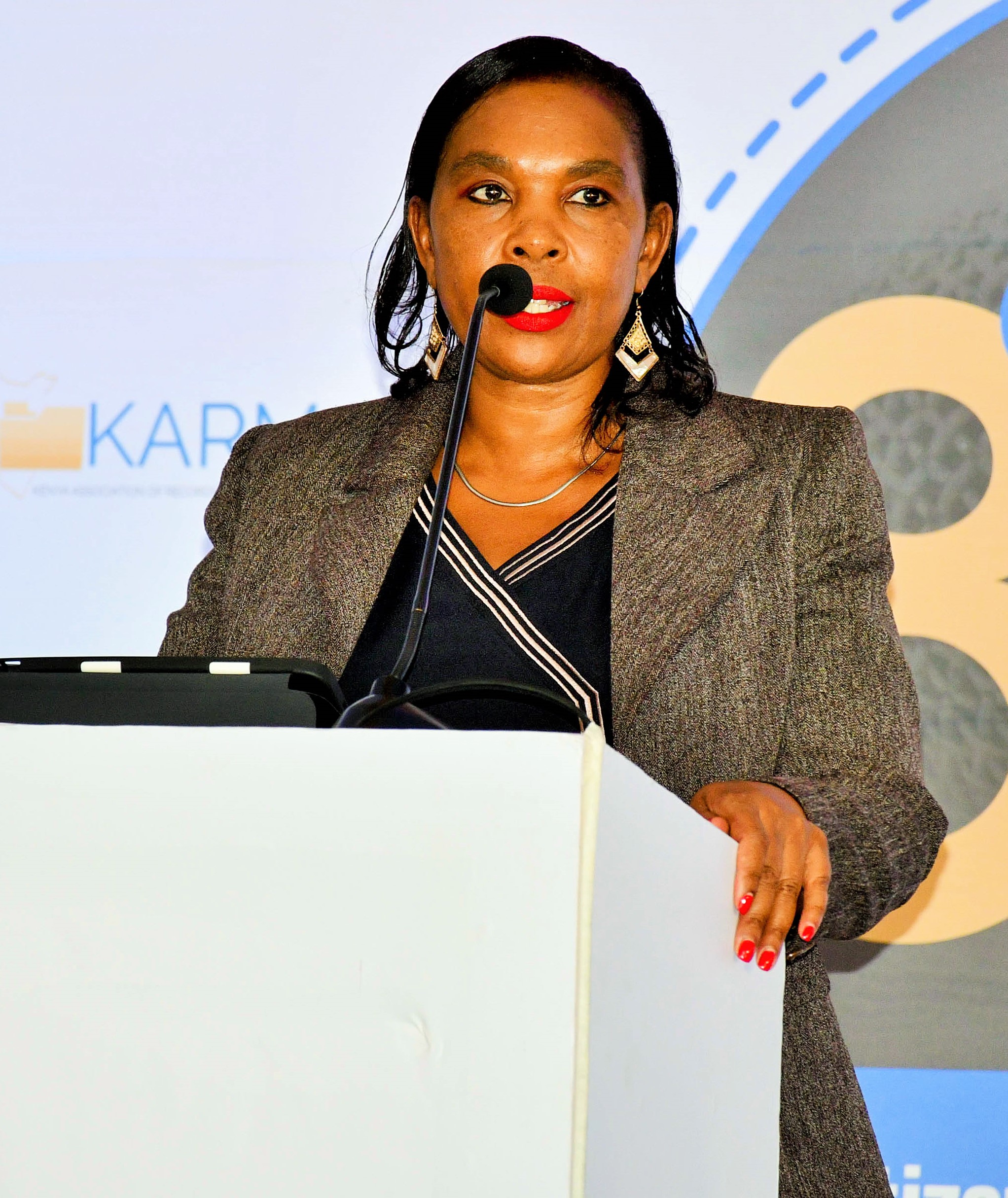Ministry hastens up digital shift with 19,000 services now online
MABEL KEYA – SHIKUKU, KNA
The Government has digitized 19,000 services since beginning the process in July 2023.
ICT and Digital Economy Cabinet Secretary (CS) Dr. Margaret Nyambura Ndung’u stated that digitization aims to make government services more accessible and improve efficiency and service delivery.
Dr. Ndung’u noted that her ministry is collaborating with other stakeholders to enhance connectivity and ensure digitized services are accessible and user-friendly.
“E-Citizen, for instance, has both a front end for users and a back end for records and data, which requires capacity building and training for users,” she said.
Speaking at the eighth convention of the Kenya Association of Records Managers and Archivists (KARMA) in Naivasha, themed “From Digitization to Digital,” Dr. Ndung’u emphasized the need for digital access to enhance transparency and service efficiency.
The four-day conference gathered record managers, archivists, industry experts, and policymakers to discuss transitioning from digitization to digital transformation.
Commenting on the ongoing transition from the National Health Insurance Fund (NHIF) to the Social Health Insurance Fund (SHIF), Dr. Ndung’u highlighted efforts to ensure a seamless transition and ease challenges, such as connectivity issues that have impacted access to essential health services.
The government is also progressing with its “last mile” digital connectivity initiative, encouraging young people to leverage it for social and economic development.
In 2024, 1,450 ICT hubs will be established across the country’s wards to provide digital literacy training, support content creation, and facilitate access to government services.
The National Constituency Development Fund (NGCDF) will contribute three per cent of its budget to support these hubs.
These digital hubs will offer super-fast broadband and serve as community centers. The digitization effort includes three key pillars: connectivity and access, skill development, and cybersecurity.
The hubs are designed to support underserved communities and bring services closer to rural areas. To date, 30 kilometers of the planned 10,000-kilometer “digital superhighway” have been completed.
Dr. Ndung’u stressed the importance of cybersecurity and safe online practices, particularly among youth, as challenges like cyberbullying have grown.

